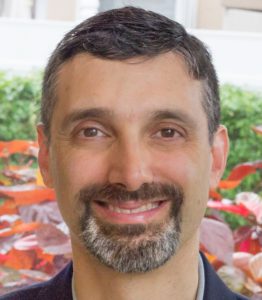A d’var Torah on Shabbat Nachamu
Clarence Office, Jr., of Miami, FL, served in the U.S. Army for three years in the 1970s and was honorably discharged. Like many veterans, Clarence tragically fell into drug use and was arrested for drug offenses. He served a prison term and paid his debt to society. Clarence now works with the Florida Department of Veterans Affairs and counsels other veterans who have encountered problems with the criminal justice system. Clarence matured into a model citizen and community leader. Because of his drug conviction, however, the State of Florida denies him the foundation of our country’s citizenship: the right to vote.
Judaism promotes second chances. Consider the present juncture of the Jewish calendar. Tisha B’Av is barely behind us. On this day of fasting, we reflect on calamities in Jewish history such as the destruction of the First and Second Temples. We sit on the floor and read the Biblical book Eicha, Lamentations. Tisha B’Av reminds us not only that we suffered terrible events but that we bear responsibility for their occurrence. We reflect on our national sins, such as idolatry and widespread injustice, for which God sentenced us to exile.
The mood of the Jewish calendar then abruptly shifts. The first Sabbath following Tisha B’Av—this coming Shabbat—is Shabbat Nachamu, the Sabbath of Comfort. It is so named for the special Haftarah reading from Isaiah 40 that begins: Nachamu Nachamu ami, Comfort, oh comfort My people, says your God. The prophet is speaking directly to the Jews of Babylonia who were exiled there in 586 BCE. Cyrus of Persia conquered Babylonia in 539 BCE and permitted exiled peoples to return to their ancestral homes, including the Jews to Israel. The prophet witnesses this hopeful turn of events in verse 2:
Speak tenderly to Jerusalem,
And declare to her
ki mal’ah tz’va’ah That her term of service is over,
ki nirtzah avonah That her iniquity is expiated;
For she has received at the hand of the LORD
Double for all her sins.
Common practice in the United States has been to deny voting rights to people convicted of felonies, in  some cases permanently. Individuals who break the rules of society, the thinking goes, should not play a role in making the rules of society. Such reasoning is faulty. A person who returns from a prison sentence pays taxes. Yet, they are denied the essence of citizenship—the right to vote. Voting is not only a right; it is a responsibility to one’s community. Indeed, someone who has experienced prison might be moved to make even more informed and compassionate choices than others in carrying out their right to vote.
some cases permanently. Individuals who break the rules of society, the thinking goes, should not play a role in making the rules of society. Such reasoning is faulty. A person who returns from a prison sentence pays taxes. Yet, they are denied the essence of citizenship—the right to vote. Voting is not only a right; it is a responsibility to one’s community. Indeed, someone who has experienced prison might be moved to make even more informed and compassionate choices than others in carrying out their right to vote.
one out of every ten adults cannot vote. Florida is one of three states, along with Kentucky and Iowa, that permanently disenfranchises all citizens with felony convictions. In Florida, the only recourse is to apply for clemency through an arduous process to reinstate voting rights. It may take years for approval, and many are denied the vote for life. Since 2011, barely 2,000 Floridians with criminal records successfully regained the right to vote. Upwards of 1.5 million people with prior convictions, mostly African Americans, remain disenfranchised.
This year, a grassroots organization, Floridians for a Fair Democracy, launched the Second Chances Florida campaign, which succeeded in sending a ballot initiative to Florida voters this November. If approved, Amendment 4 would restore voting rights to Floridians with felony convictions after they complete all terms of their sentence including parole or probation. The amendment would not apply to those convicted of murder or sexual offenses, who would continue to be permanently barred from voting unless the governor and cabinet restore their voting rights on a case by case basis. (However one feels about these two exclusions, the amendment would greatly increase the number of eligible voters). The amendment requires 60% approval at the ballot box in order to become law.
The passage of Amendment 4 in Florida has the potential to repair a gross injustice. It not only will restore a basic right to fellow citizens, it will empower returning citizens to feel invested as responsible citizens in their communities. Their deeper stake in society’s future will foster many more leaders like Clarence Office.
Rabbi Edward C. Bernstein of Boynton Beach, FL, serves as a chaplain for Vitas Healthcare. He was ordained at the Jewish Theological Seminary. His book Love Finer Than Wine: The Writings of Matthew Eisenfeld and Sara Duker was a 2016 National Jewish Book Awards Finalist. Follow him on Twitter @rabbiecb.


